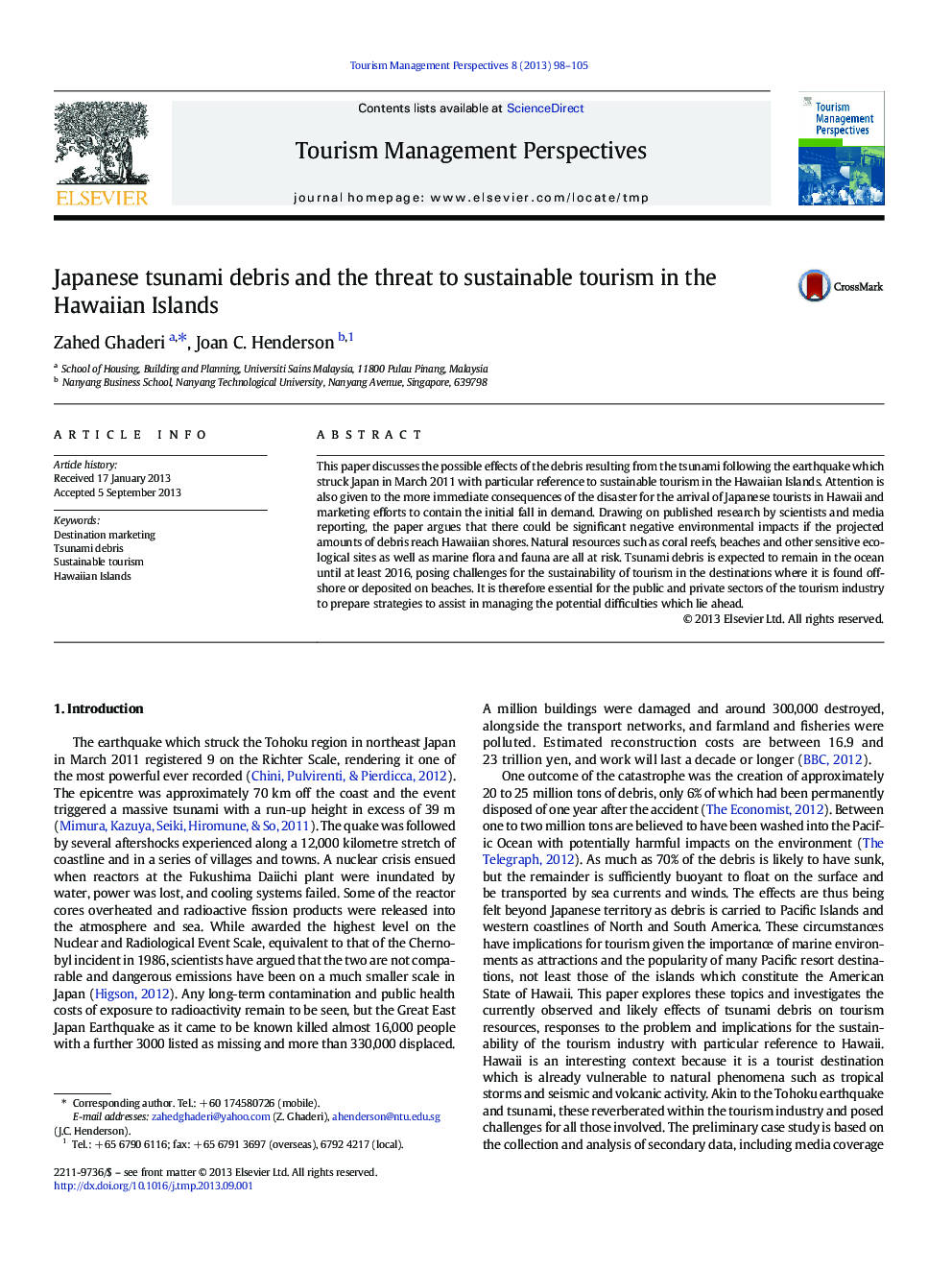| Article ID | Journal | Published Year | Pages | File Type |
|---|---|---|---|---|
| 1013737 | Tourism Management Perspectives | 2013 | 8 Pages |
•Discusses immediate consequences of tsunami debris for Hawaii’s Japanese market•Explores possible longer term environmental impacts of tsunami debris•Considers implications of tsunami debris for sustainable tourism•Makes reference to issues of crisis management and destination recovery
This paper discusses the possible effects of the debris resulting from the tsunami following the earthquake which struck Japan in March 2011 with particular reference to sustainable tourism in the Hawaiian Islands. Attention is also given to the more immediate consequences of the disaster for the arrival of Japanese tourists in Hawaii and marketing efforts to contain the initial fall in demand. Drawing on published research by scientists and media reporting, the paper argues that there could be significant negative environmental impacts if the projected amounts of debris reach Hawaiian shores. Natural resources such as coral reefs, beaches and other sensitive ecological sites as well as marine flora and fauna are all at risk. Tsunami debris is expected to remain in the ocean until at least 2016, posing challenges for the sustainability of tourism in the destinations where it is found offshore or deposited on beaches. It is therefore essential for the public and private sectors of the tourism industry to prepare strategies to assist in managing the potential difficulties which lie ahead.
